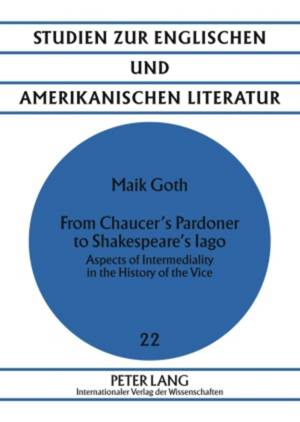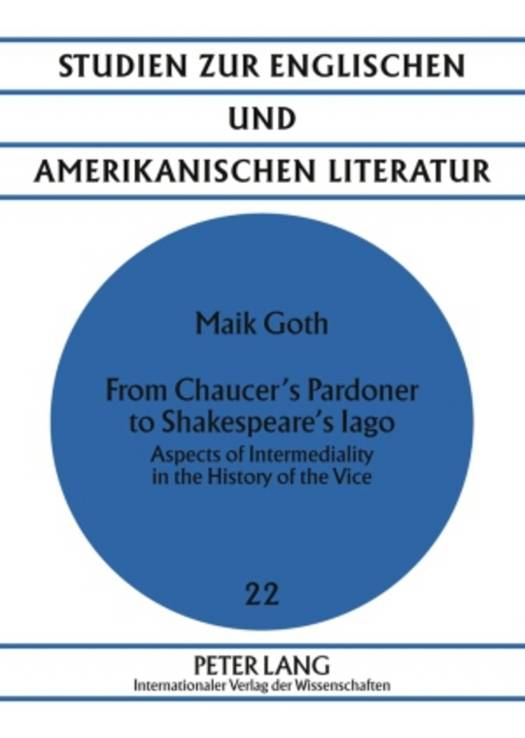
- Afhalen na 1 uur in een winkel met voorraad
- Gratis thuislevering in België vanaf € 30
- Ruim aanbod met 7 miljoen producten
- Afhalen na 1 uur in een winkel met voorraad
- Gratis thuislevering in België vanaf € 30
- Ruim aanbod met 7 miljoen producten
Zoeken
From Chaucer's Pardoner to Shakespeare's Iago
Aspects of Intermediality in the History of the Vice
Maik Goth
€ 65,45
+ 130 punten
Omschrijving
In The Western Canon: The Books and School of the Ages the American critic Harold Bloom claims that Shakespeare drew on Chaucer's Pardoner when creating the villain Iago for his Othello. This book turns Bloom's observation of influences within the canon of Western literature into a more complex intermedial analysis of dramatic and literary traditions at the waning of the Middle Ages and the dawn of the Renaissance. The discussion of verbal and non-verbal codes in Chaucer's presentation of the Pardoner and Shakespeare's depiction of Iago sheds light on the various strands of the Vice's development, and shows that Chaucer's pilgrim, who descends obliquely from the stage Vices, stands at the very beginning of the Vice tradition, while Iago is a late development of him, who adapts his role to new dramatic challenges.
Specificaties
Betrokkenen
- Auteur(s):
- Uitgeverij:
Inhoud
- Aantal bladzijden:
- 150
- Taal:
- Engels
- Reeks:
- Reeksnummer:
- nr. 22
Eigenschappen
- Productcode (EAN):
- 9783631564653
- Verschijningsdatum:
- 8/05/2009
- Uitvoering:
- Paperback
- Formaat:
- Trade paperback (VS)
- Afmetingen:
- 148 mm x 210 mm
- Gewicht:
- 199 g

Alleen bij Standaard Boekhandel
+ 130 punten op je klantenkaart van Standaard Boekhandel
Beoordelingen
We publiceren alleen reviews die voldoen aan de voorwaarden voor reviews. Bekijk onze voorwaarden voor reviews.











